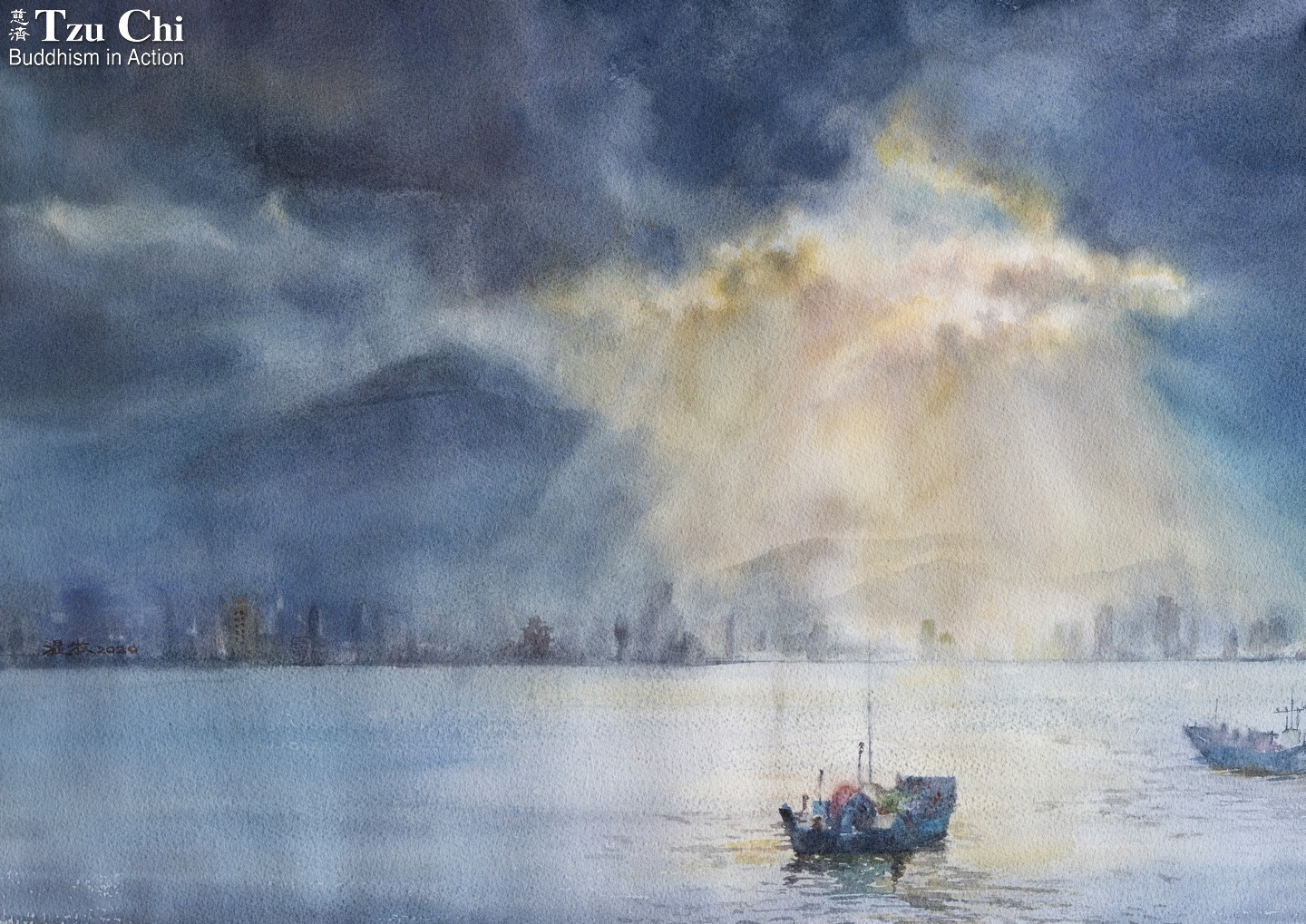Narrated by Shen Huan-ting, chief of chest medicine, Taichung Tzu Chi Hospital
Compiled by Yang Shi-jie and Lan Ming-heng
Edited and translated by Wu Hsiao-ting
Painting by Wen Mu
Fifteen years in the intensive care unit have shown me the fragile balance between life and death. Despite our best efforts, some outcomes are beyond our control. Yet, our palliative care team demonstrates that, even in the face of the inevitable, love can make all the difference.

I came across a prayer that resonated deeply with me:
I no longer wish to be an expert at solving problems; I simply want to be a companion in life. I no longer wish to be obsessed with playing the hero who saves lives; I only want to sit beside you as an equal, look at you, and listen to your stories. I no longer wish to change others’ lives; I simply want to go deeper into life and listen with my whole heart.
Fifteen years in the intensive care unit (ICU) have shown me the delicate balance between life and death. Despite our tireless efforts, not all battles can be won.
Five years ago, at 43, Mr. Chen was involved in a severe car accident that left him with a traumatic brain injury. Emergency surgery was performed to create a tracheostomy, enabling him to be placed on a ventilator to sustain his bodily functions. Bedridden and unable to recognize anyone, he was later transferred from a nursing facility to Taichung Tzu Chi Hospital for treatment. Upon discharge, his wife, unwilling to leave him in institutional care, brought him home to care for him herself. The pressure on her as a caregiver was immense. Each day, she turned him in bed, patted his back, suctioned his phlegm, and changed his dressings. She also learned to operate a home ventilator.
Mr. Chen was admitted to Taichung Tzu Chi Hospital 15 times over the next three years. I directly supervised his care in 13 of those admissions. Some might attribute his frequent hospital visits to inadequate home care, but this couldn’t be further from the truth. Mr. Chen’s wife was an excellent caregiver. For example, he once had a pressure ulcer on his sacrum and tailbone the size of a fist. Through his wife’s meticulous care, it healed to the size of a coin—a testament to her devotion.
Despite her exceptional efforts, the car accident caused irreversible damage to Mr. Chen’s health, resulting in progressive organ failure. Unable to speak, he endured his suffering in silence, leaving us to imagine its extent. His problems only grew worse with time. He developed a chronic abscess in his left eye. His stomach’s impaired emptying function required a nasogastric tube to drain gastric fluids and a duodenal tube for feeding, leading to recurring gastric ulcers. He also suffered complications such as cirrhosis, an enlarged spleen, chronic anemia, and autonomic dysfunction, which caused erratic blood pressure. His care grew increasingly complex.
Feeling the family’s growing anxiety and burden, we had several discussions with them, and our home palliative care team became involved early on. By February 2024, Mr. Chen’s liver and kidneys were nearing complete failure. Given the irreversible nature of his condition, additional life-sustaining measures like dialysis were not recommended. Recognizing the limitations of home care, we worked with his family to arrange his transfer to the hospital’s palliative care ward.
Mr. Chen had two children, in junior and senior high school. Upon learning that their father’s time was limited, they took leave from school to stay by his side. When they voiced the heartbreaking thought, “After Dad passes away, we’ll never be able to hold his hand again,” the palliative care team made a plaster cast of Mr. Chen’s left hand as a keepsake for the children. When they received the gift, they said, “Whenever we need strength in the future, we can hold Dad’s hand and remember him.”
I attended some of the meetings regarding Mr. Chen’s care and was deeply moved by the palliative care team’s efforts. They arranged for him to have a soothing bath—a remarkable feat for someone dependent on a ventilator—and helped his children create a “graduation from life” album for their father. Mrs. Chen, who had initially resisted transferring her husband to the palliative care ward, ultimately expressed heartfelt gratitude for the team’s compassionate care.
What I couldn’t achieve for Mr. Chen in the ICU, the palliative care team accomplished with compassion and commitment. I am deeply grateful to my colleagues for providing Mr. Chen with final days filled with love, comfort, and dignity.



